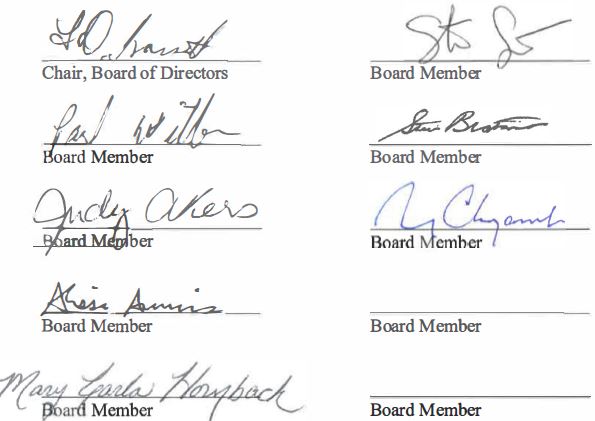
BOD Code of Ethics
Preamble
Elizabethtown Community & Technical College is a public agency, duly organized and operating under the authority of the Kentucky Community and Technical College System (KCTCS), which is governed by the KCTCS Board of Regents. KRS 164.600 establishes Boards of Directors for KCTCS colleges to advise, support, and assist KCTCS colleges in serving the citizens of the Commonwealth, and prescribes the duties thereof. Members of the Boards of Directors may take an Oath of Office in which they pledge to be faithful and true in their support of the Constitutions of the United States and the Commonwealth of Kentucky, and to faithfully execute the duties of their positions according to law. In furtherance thereof and to promote public confidence in the college, the Board of Directors hereby agrees to adhere to the principles of ethical conduct below.
Code of Ethics
Each member of the Elizabethtown Community & Technical College Board of Directors shall:
- Be familiar with the duties and responsibilities prescribed to the Board by KRS 164.600
and the College Bylaws, and perform those duties and responsibilities to the best
of their abilities;
- Keep reasonably well-informed on Board issues, and attend and actively participate
in Board and committee meetings and events;
- Make judgments and recommendations based only on the best interests of the college
as a whole and the advancement of higher education in the Commonwealth;
- Refrain from interfering with the operational management of the college, including
but not limited to matters involving:
- Individual student admission/retention/discipline;
- Purchasing or contracting relationships; and,
- Individual human resources issues other than an evaluation of the President as part
of the Board's statutory duties;
- Respect the authority and responsibility of College and KCTCS officials and employees,
empowering them to carry out their duties without undue interference;
- Avoid the appearance of impropriety as well as perceived or actual conflicts of interest
by abiding by the following statutory requirements:
- No College officer shall make transactions of any business with himself/herself, or with any corporation, company association, or firm in which he/she or his/her spouse has any interest greater than five percent (5%) of the total value.
- No College officer shall knowingly for himself/herself or by his/her partners or through any corporation which he/she controls or in which he/she owns or controls more than ten percent (10%) of the stock, or by any other person for his/her use or benefit or on his/her account, undertake, execute, hold, or enjoy, in whole or in part, any contract, agreement, sale or purchase of the value of twenty-five dollars ($25) or more, made, entered into, awarded or granted, unless said contract, agreement, sale or purchase was made or let after public notice and competitive bidding.
- No College officer, including persons who serve without salary or other payment for their services, shall knowingly receive or agree to receive, directly or indirectly, compensation for any services rendered or to be rendered, either by himself/herself or another, in any cause, proceeding, application or other matter which the University functions.
- No member of the Board of Directors shall have an interest in any contract with the
College unless such contract shall have been subjected to competitive bidding, unless
such Director shall have been the lowest bidder and unless such Director shall have
first notified in writing the remaining members of the Board, and the newspaper having
the largest circulation in the county of the College, of his/her intention to bid
on such contract; and
- Fully disclose potential conflicts of interest as soon as the facts reasonably indicate
such potential.
- Act with individual conviction, but to respect the Board's collective decision-making,
support the majority decision, cooperate with other Board members, and avoid acting
as a spokesperson for the Board unless authorized by the Chair or Board to do so;
and,
- Model and promote civility, collegiality, and mutual respect for and among all stakeholders in every interaction.
Violations of the Code of Ethics
- Board members should neither commit nor tolerate violations of this Code of Ethics.
- Board members should promptly bring alleged violations to the attention of the Chair,
or if the Chair is the subject of a complaint, then to the Vice Chair.
- The Chair or Vice Chair will undertake a reasonable process to determine the merits
of a complaint, and methods to resolve the issues, in light of the Board's statutory
duties, the Bylaws, this Code of Ethics, and the best interests of the college, its
stakeholders, and community.
- If appropriate, the Board may resolve to reprimand or censure Board members who violate this Code of Ethics. If so, the Board Chair shall promptly forward to the KCTCS President any such decision of the Board and all accompanying documents.
Adopted this 11 day of May 2018:

